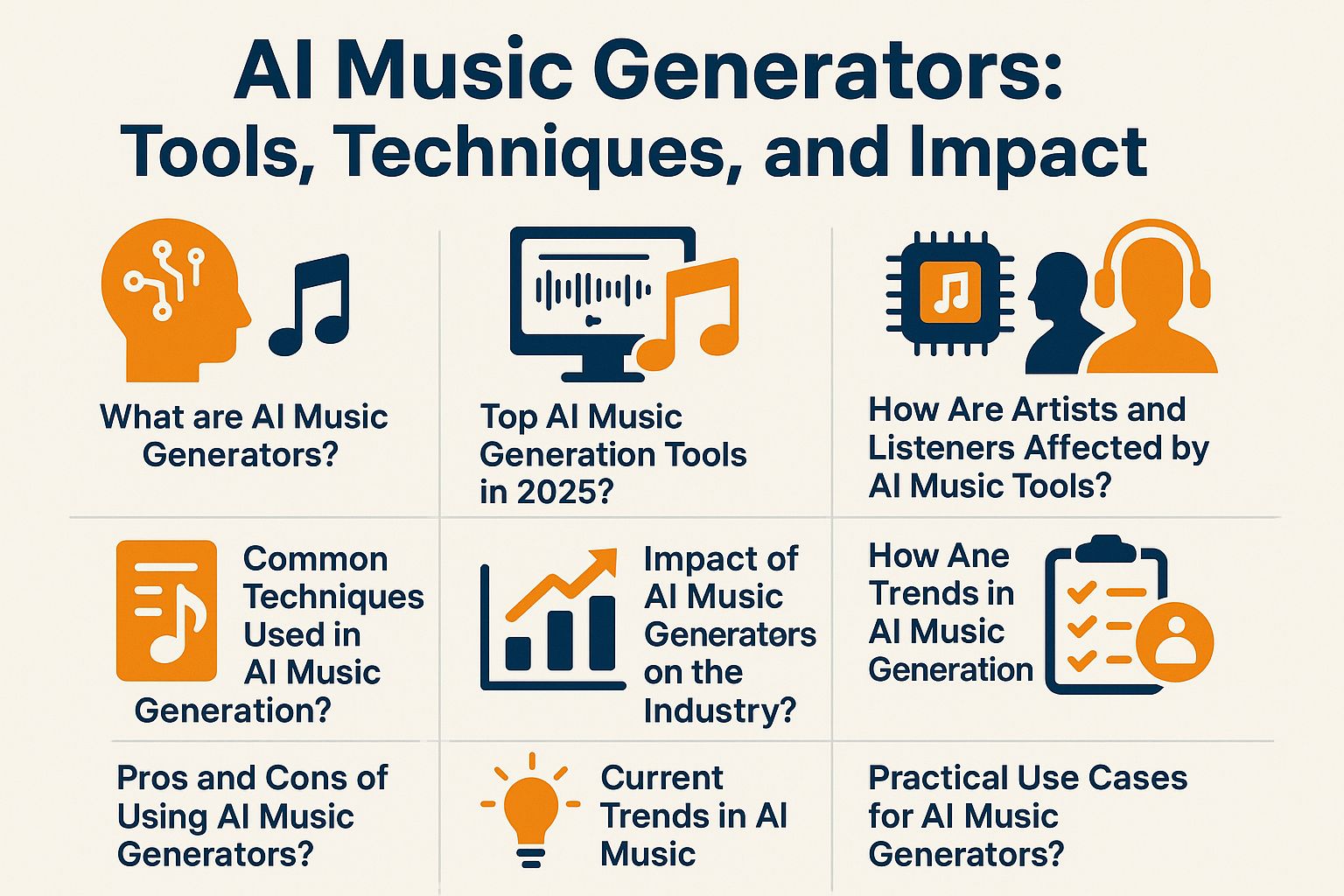
As the music industry evolves, understanding AI music generators and tools is essential for artists, producers, and enthusiasts. This article explores the innovative tools and techniques shaping song creation and AI creativity in 2025, from Auto-Tune enhancements to advanced algorithms, including AI learning and music education solutions. We’ll delve into how these AI tools are transforming music uploads, production, and listener experiences, while weighing their pros and cons. Gain insights into current trends and practical use cases to navigate this dynamic landscape effectively.
Key Takeaways:AI music generators are software tools that use machine learning and neural networks to create original music compositions.The impact of AI music generators on the music industry is significant, affecting production, distribution, and consumption of music.While AI music generators offer many benefits, there are also drawbacks and challenges for artists and listeners, and it is important to understand the current trends and potential future developments in this field.
Understanding AI Music Generators
AI music generators are sophisticated software tools that leverage artificial intelligence to compose original music. These innovations are transforming music production and impacting AI copyright detection and music consumption in the industry. For context, Harvard Business Review explores the intellectual property challenges posed by generative AI, highlighting significant implications for copyright law.
Definition and Overview
At their core, AI music generators are software solutions that utilize algorithms to compose music, ranging from simple melodies to intricate arrangements while often emulating various genres and styles. These generators analyze extensive datasets of existing music to learn the patterns, offering interactive lessons and real-time feedback, structures, and nuances that characterize different genres.
For instance, tools such as OpenAI’s MuseNet and Google’s Magenta employ deep learning techniques to create original compositions by examining thousands of songs. Users have the ability to experiment with parameters such as tempo, mood, and instrumentation, enabling the AI to produce music that aligns closely with their creative vision.
This approach not only enhances artistic expression but also democratizes music production, making it accessible to aspiring musicians.
Top AI Music Generation Tools in 2025
By 2025, AI music generation tools such as Yousician and Soundraw have emerged as prominent players, each with unique features to meet diverse user needs.
Looking for a side-by-side comparison of these tools?
Check out our full guide: Best AI Music Generators (2025): Ultimate Guide to Creating and Comparing AI-Generated Music – where we review and rank Soundraw, AIVA, Boomy, Amper, and more with use cases, pricing, and audio previews.
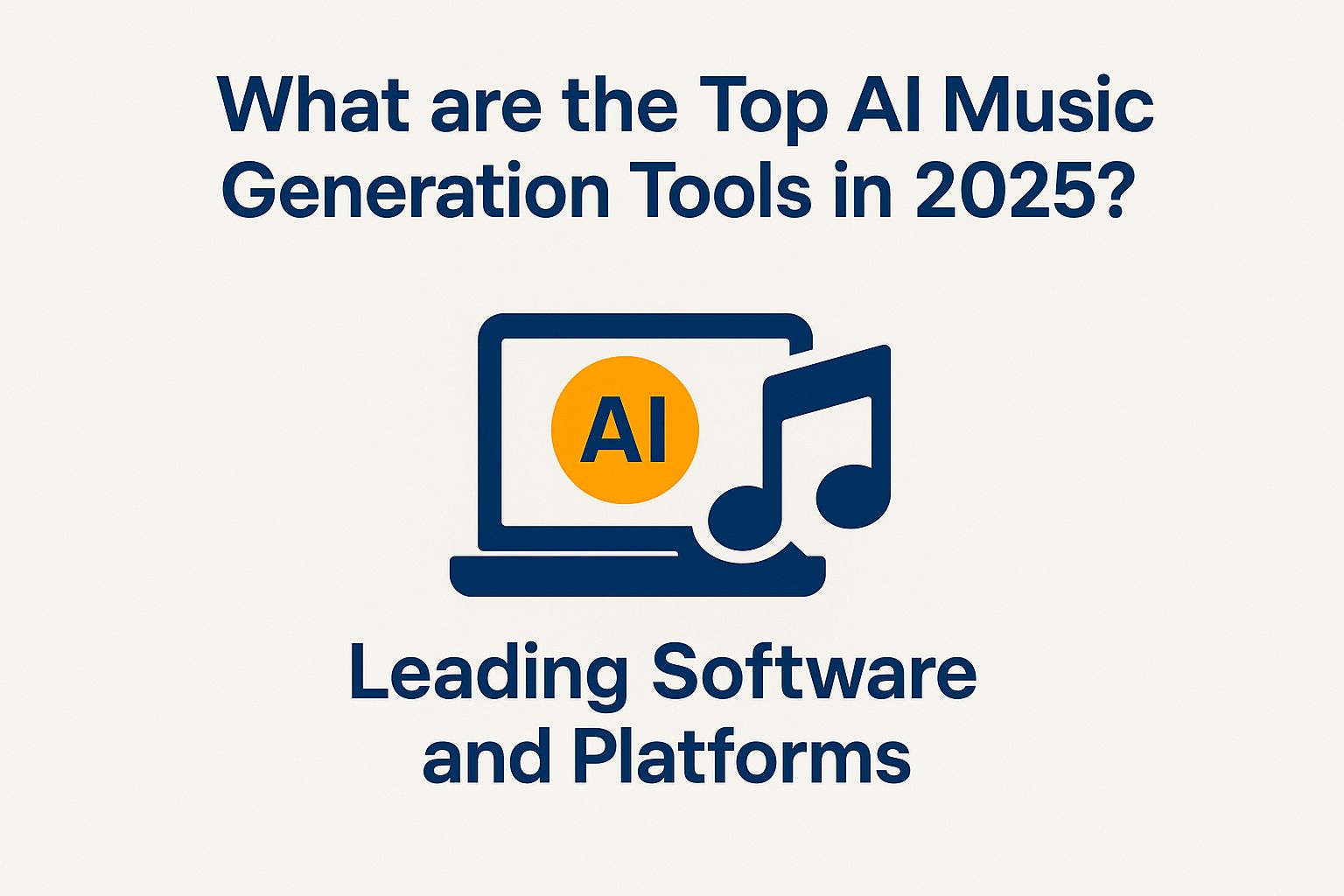
Leading Software and Platforms
Among the leading software platforms for AI music generation are LANDR, AIVA, and Beatoven.ai, each distinguished by its unique features and user experiences.
LANDR specializes in mastering audio tracks and features a user-friendly interface appealing to both beginners and experienced musicians.
AIVA distinguishes itself with its advanced algorithm capable of composing music, enhancing AI in film and concerts across various genres, making it a favored choice among film composers.
Conversely, Beatoven.ai offers seamless integration with existing digital audio workstations (DAWs), providing users with a collaborative environment for real-time music creation and immersive listening experiences.
Depending on specific needs-whether it involves mastering, composition, or integration-these tools present unique strengths that can significantly enhance the music production process.
How AI Music Generators Function
AI music generators use a combination of algorithms and machine learning techniques to analyze and synthesize music, transforming data into sound. For a deeper understanding of this intersection between technology and creativity, Wikipedia offers a comprehensive overview of music and artificial intelligence, including the latest advancements and applications in the field.
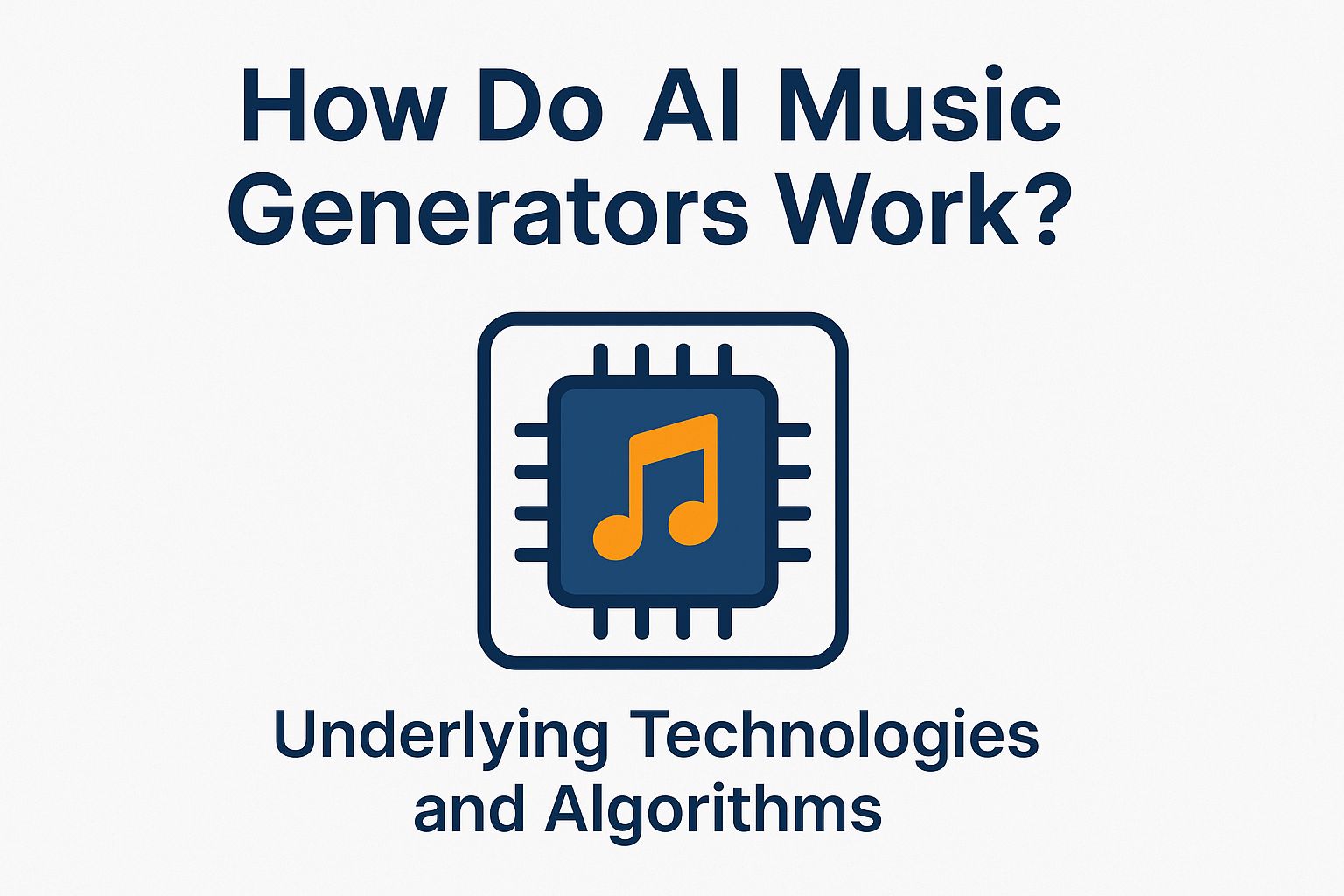
Underlying Technologies and Algorithms
The backbone of AI music generators consists of machine learning techniques, particularly neural networks, which allow the software to learn from extensive musical data. These systems typically utilize datasets such as MIDI files, music theory textbooks, and content from streaming platforms to identify patterns across various genres.
Training methods include supervised learning, where the neural network receives labeled examples, or unsupervised learning, which allows it to identify structures in unlabeled data.
The implications of employing these technologies are significant, particularly in enhancing the quality and diversity of generated music. For example, by analyzing a wide range of influences, an AI can create compositions that blend different styles, resulting in innovative and unexpected melodies that resonate with audiences.
Common Techniques in AI Music Generation
AI music generation employs various techniques from machine learning and neural networks to create diverse musical compositions.
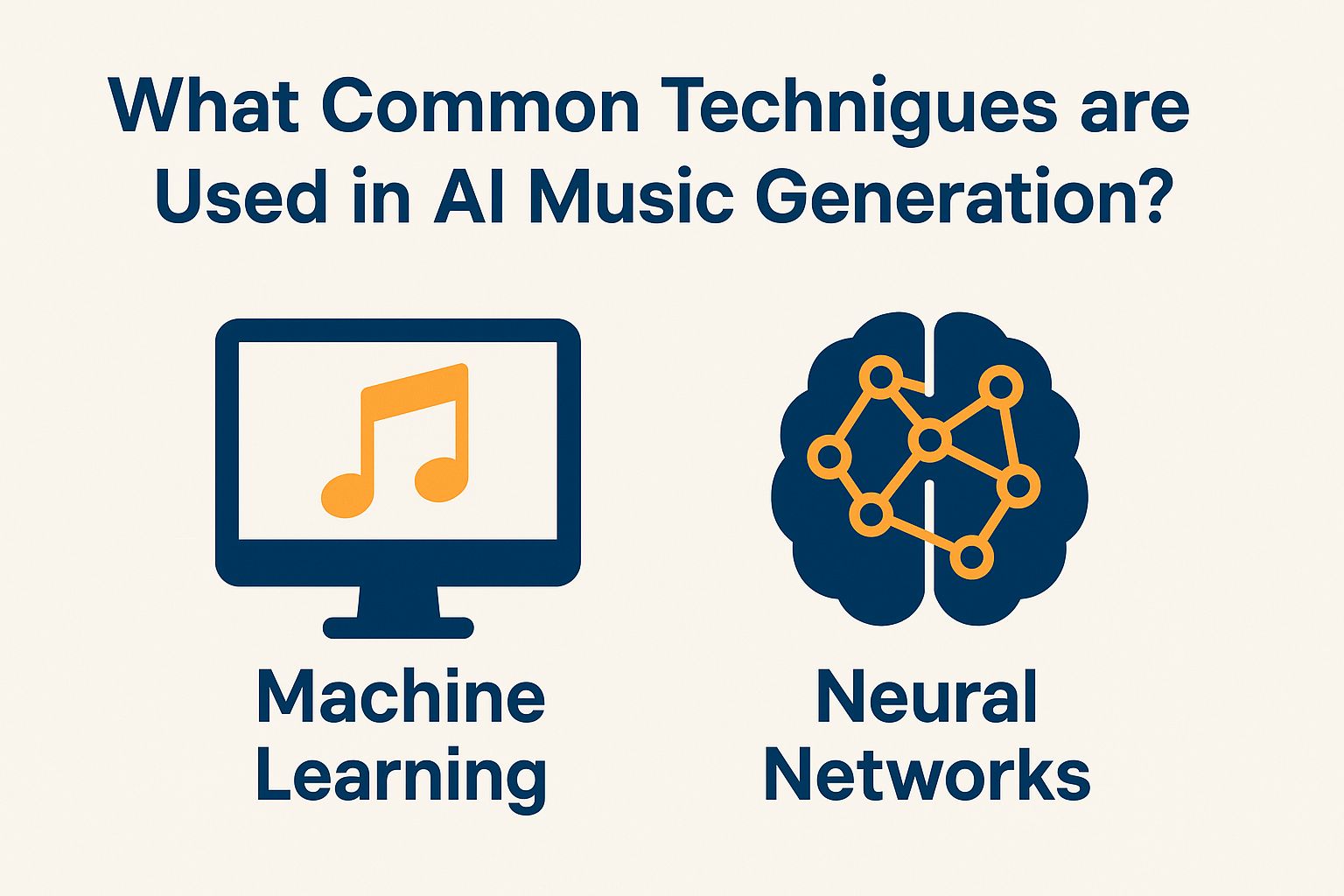
Machine Learning and Neural Networks
Machine learning, especially through neural networks, is crucial in AI music generation. It allows for the analysis and replication of complex musical patterns. To train these algorithms, large datasets of musical compositions are employed, encompassing various genres such as classical, jazz, and pop.
Feedback loops are essential in this process, as the system evaluates generated outputs against the training data, refining its understanding over time. For instance, tools like OpenAI’s MuseNet and Google’s Magenta have demonstrated significant success by allowing users to input specific styles and melodies, which the AI then adapts into unique compositions.
These tools exemplify the synergy between human creativity and machine learning innovations, resulting in the emergence of new musical expressions.
What is the Impact of AI Music Generators on the Music Industry?
The emergence of AI music generators has significantly transformed the music industry, influencing the processes of music production, distribution, and consumption. Recent analysis from Forbes suggests that AI is orchestrating the future of the music industry by introducing innovative tools and methodologies.
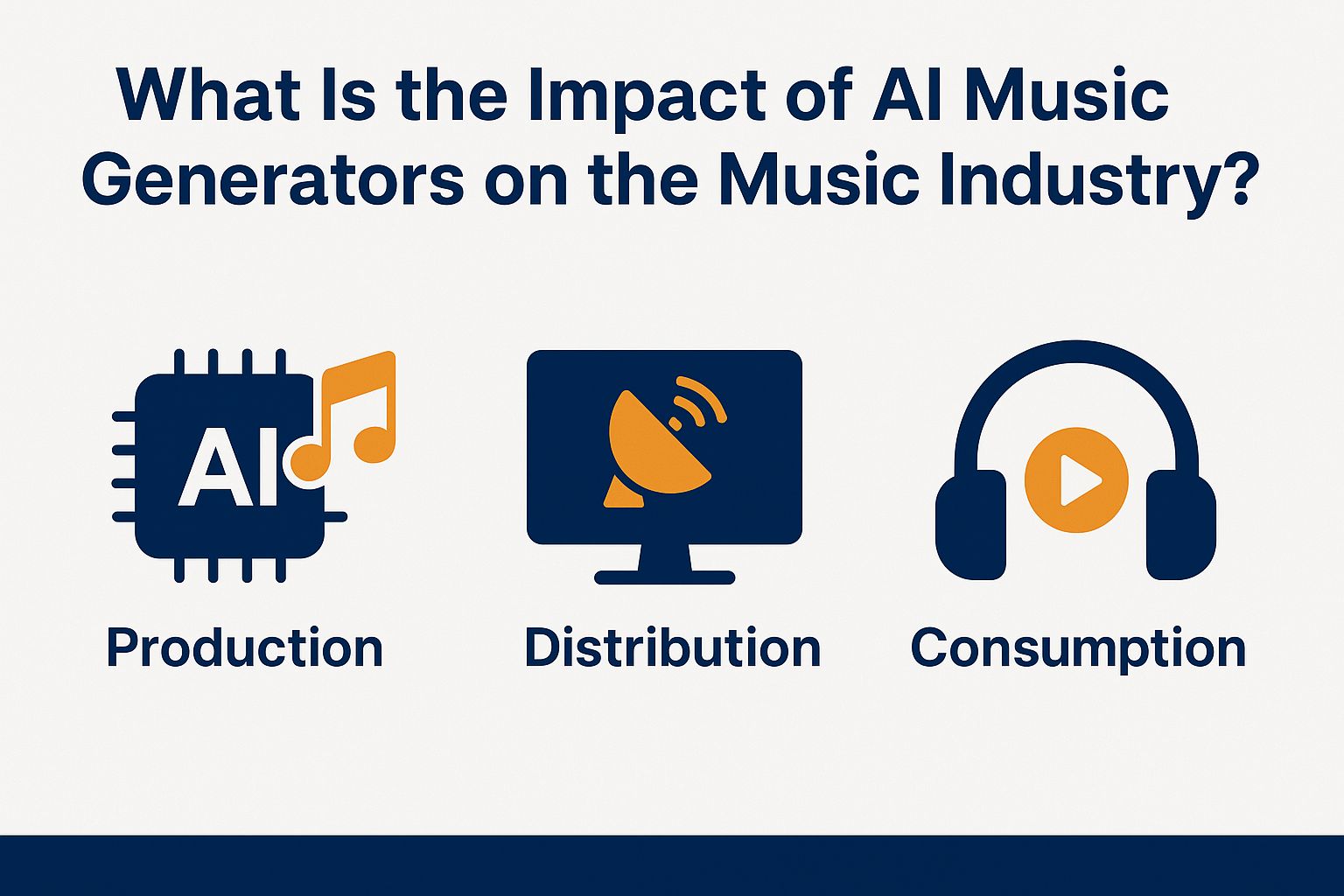
Effects on Production, Distribution, and Consumption
AI music generators are transforming production by enabling efficient high-quality music creation, aiding in music marketing and AI-powered ads, which subsequently impacts distribution methods and consumer listening habits.
For instance, tools like LANDR provide automated mastering services, enhancing audio quality quickly and allowing musicians to finalize tracks efficiently. AIVA, in contrast, employs AI to compose original music, making it an excellent choice for artists seeking unique soundscapes without a significant time commitment.
As a result, platforms like Spotify and YouTube Music experience an increase in diverse, personalized playlists and music discovery opportunities, frequently updated content, which caters to evolving listener preferences and reshapes engagement strategies within the streaming ecosystem.
Impact of AI Music Tools on Artists and Listeners
The introduction of AI music tools presents both opportunities and challenges for artists and listeners in the evolving musical landscape.
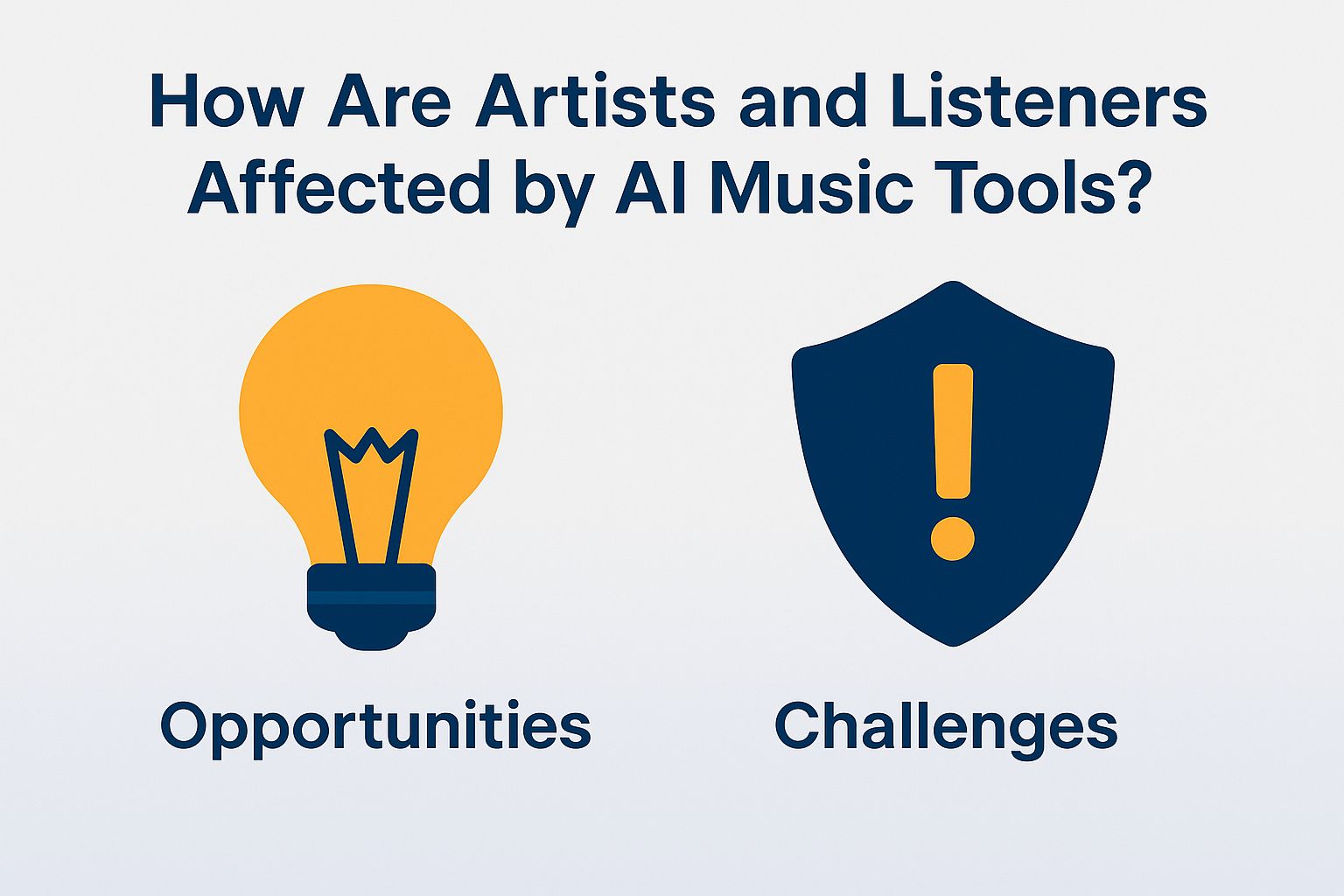
Opportunities and Challenges for Creators
For creators, AI music generators offer unique opportunities, such as enhanced creativity and efficiency, but also pose challenges like the risk of music homogenization.
Artists can utilize AI tools like Amper Music, AIVA, and Jukedeck to explore new sounds and styles, facilitating collaborations with platforms like Meta and Suno that integrate human creativity with machine learning.
For example, an artist may employ AIVA to compose a background score for a video project and subsequently adjust the output to add a personal touch. However, it is essential for artists to be mindful of over-reliance on these technologies, as this can lead to a lack of originality and increased market saturation, ultimately diminishing the value of distinct artistic voices.
What are the Pros and Cons of Using AI Music Generators?
AI music generators provide various advantages, but they also present specific drawbacks that artists and producers must evaluate carefully.
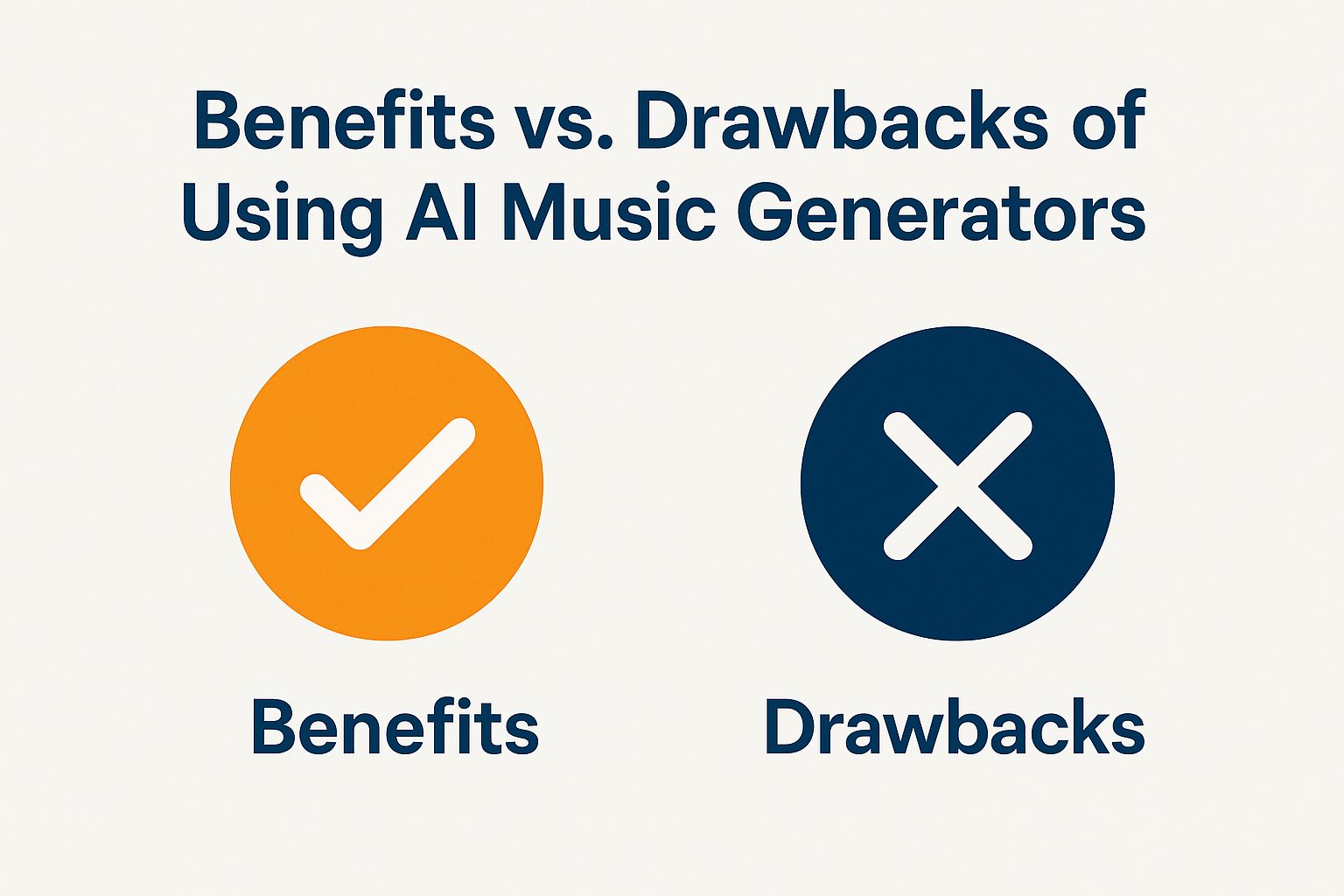
Benefits vs. Drawbacks
AI music generators offer increased efficiency and accessibility, but they may dilute artistic expression.
MuseNet and Hookpad enable users to create intricate compositions across various genres, though substantial input is required to guide the AI effectively. Amper Music is designed to be user-friendly, facilitating the quick creation of original tracks, making it particularly suitable for content creators in need of background music. AIVA specializes in generating compositions with emotional depth, although it may lack the intuitive interface found in the other tools.
Balancing the use of these AI-generated music tools can enhance productivity while preserving individual artistry.
Current Trends in AI Music Generation
Current trends in AI music generation showcase innovative tools like ArtMaster that are transforming the music industry.
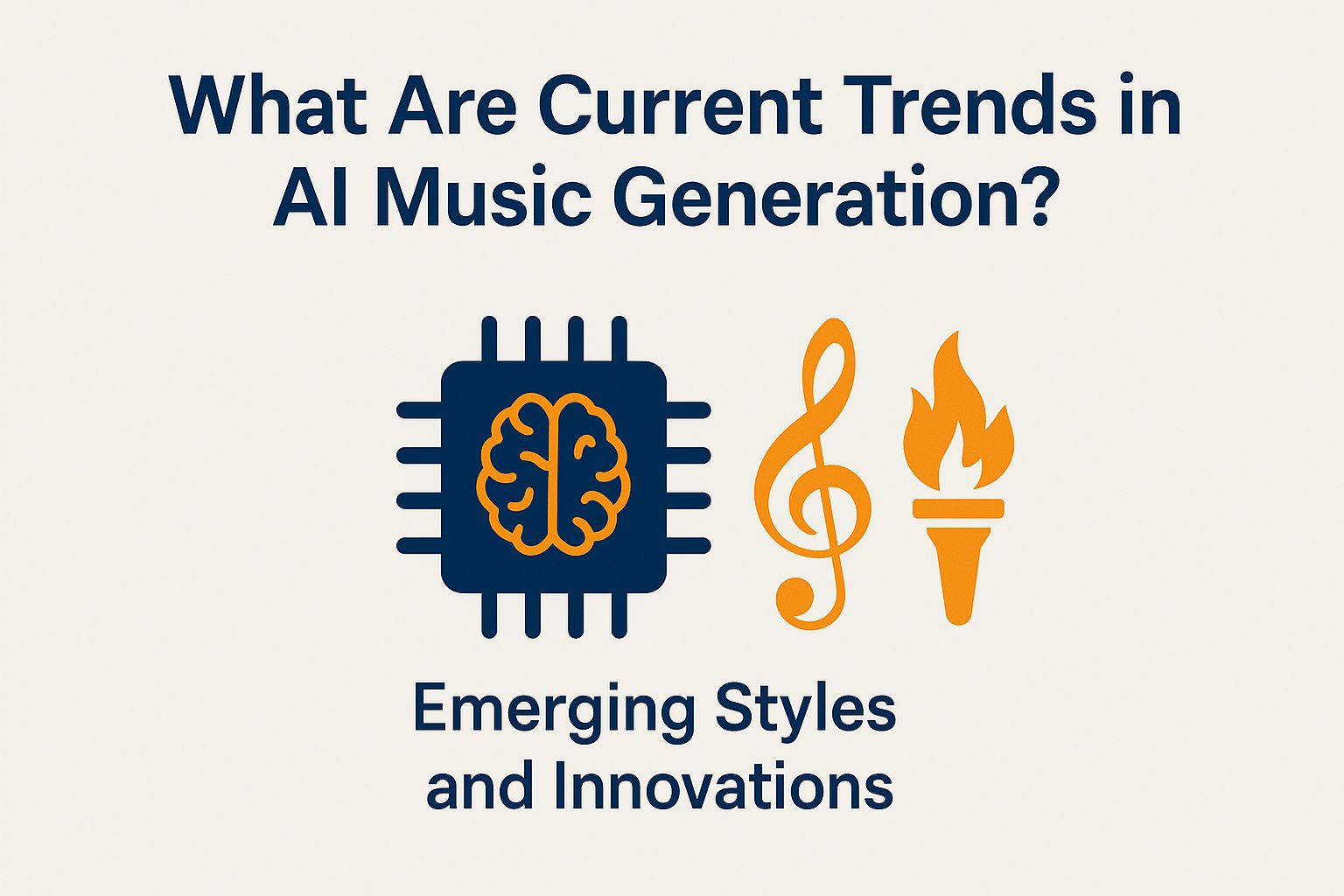
Emerging Styles and Innovations
Emerging styles in AI-generated music feature unique compositions created by tools like Orb Producer Suite, blending traditional and modern techniques to appeal to new audiences. An innovative approach in this field involves the use of Generative Adversarial Networks (GANs) to create soundscapes that evoke emotions similar to those produced by human composers.
Projects like OpenAI’s Jukedeck and Brain.fm show how AI analyzes extensive music libraries to generate original soundtracks for various moods. Additionally, Aiva, an AI composer, allows users to create custom classical scores, reminiscent of styles by The Beatles and Nirvana, highlighting the potential for tailored compositions.
These AI tools not only enhance AI creativity but also foster collaboration between humans and technology throughout the music-making process.
Practical Use Cases for AI Music Generators
AI music generators have practical applications across various genres, including AI-powered ads, film scoring, and interactive music experiences.
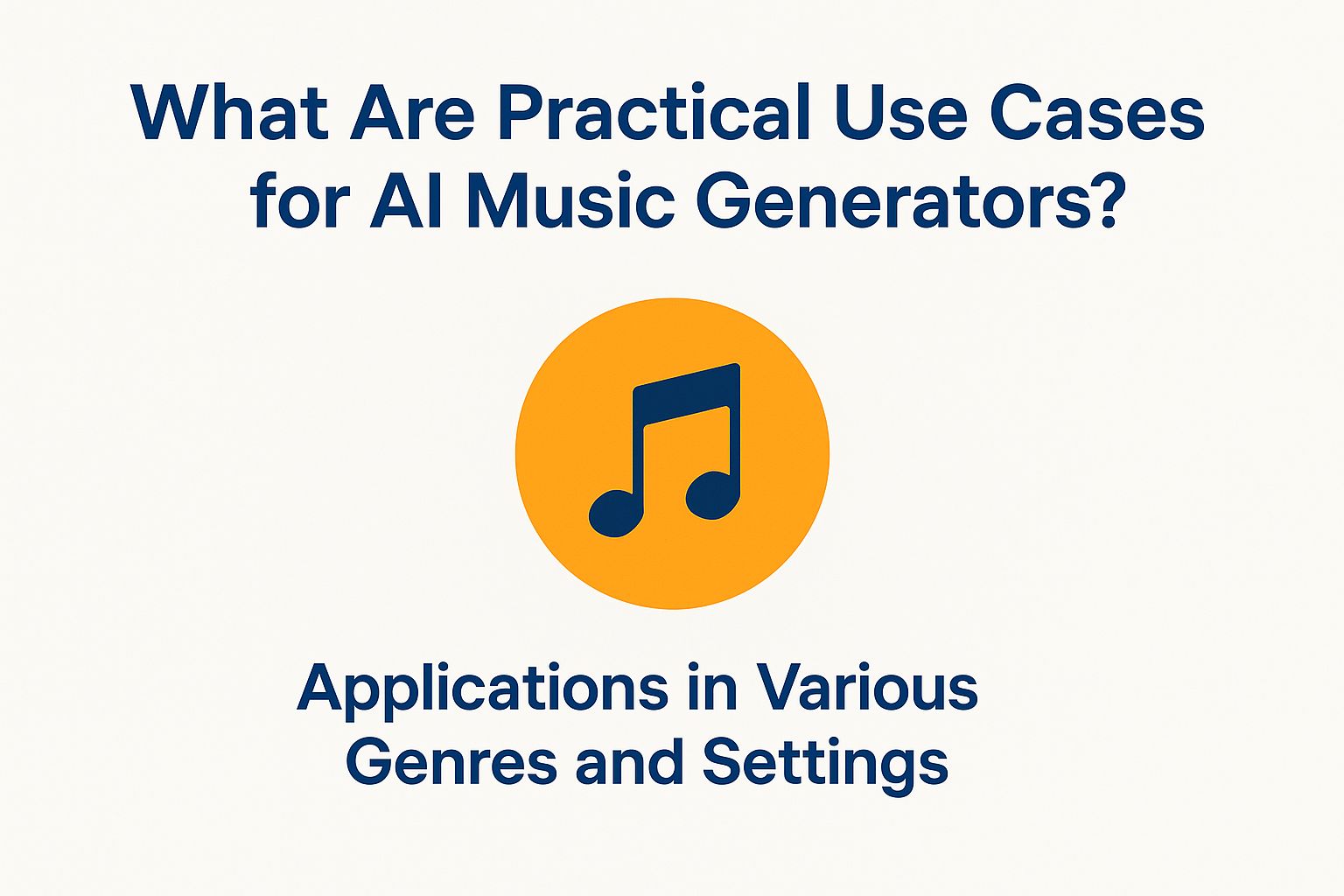
Applications in Various Genres and Settings
For example, Beatoven.ai revolutionizes personalized advertising by creating customized soundtracks that resonate with target audiences, enhancing brand recall similar to Spotify and YouTube Music. Similarly, AIVA has made significant contributions to the film industry by generating emotive scores that adapt to specific scenes or character developments.
In educational settings, these tools engage students by facilitating collaborative music composition, which fosters creativity, similar to platforms like Yousician and Hookpad.
During live performances, musicians can incorporate AI-generated backgrounds to enrich their sets, providing audiences with a unique auditory experience that evolves in real-time, akin to AI in concerts.
How Do AI Music Generators Compare to Traditional Music Creation?
Comparing AI Music Generators and Traditional Music Creation highlights notable differences in both methodology and output.
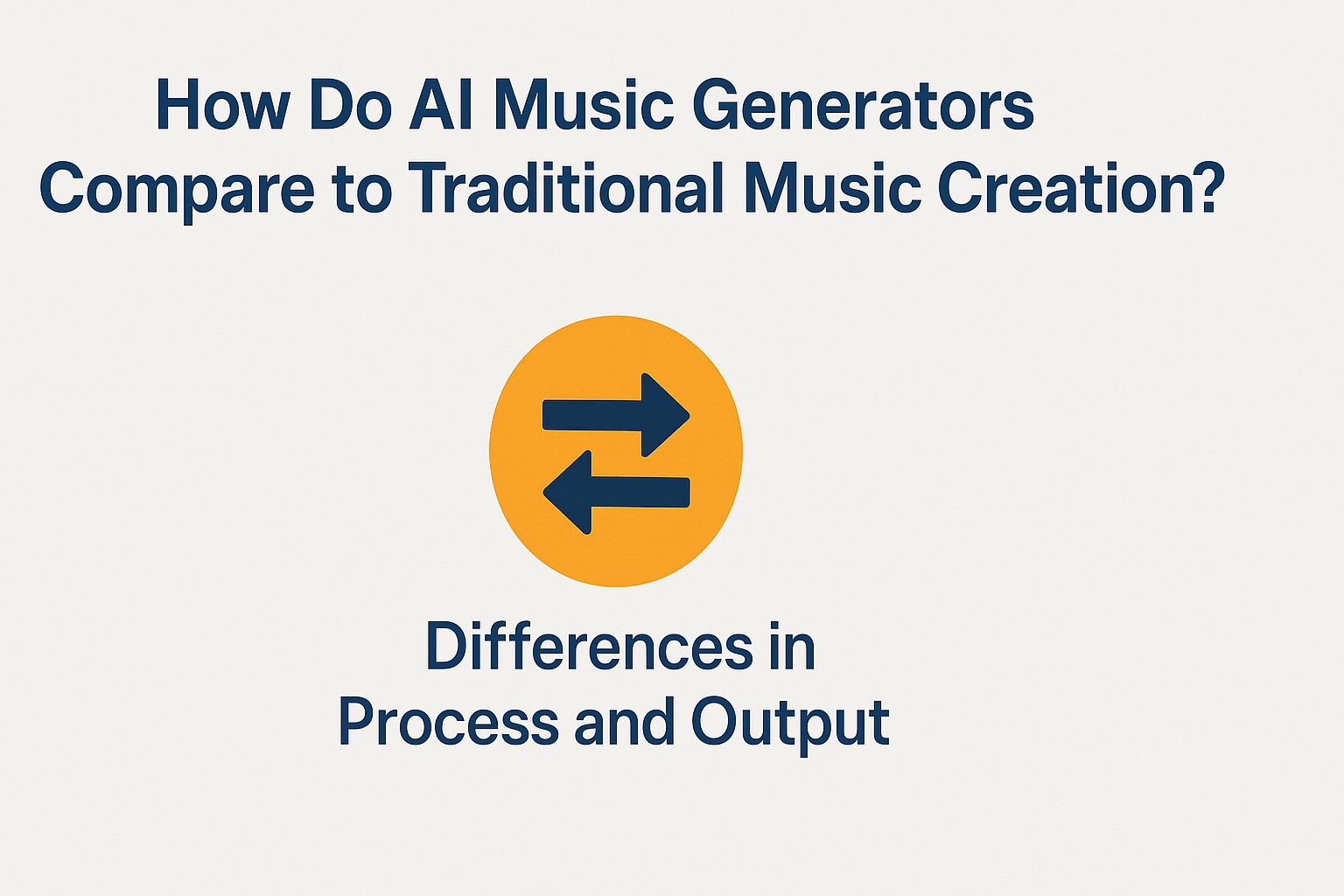
Differences in Process and Output
Creating music with AI contrasts sharply with traditional methods, influencing the final output in creativity and authenticity. Traditional methods are deeply rooted in human emotion and subjective experience, often resulting in compositions that are profoundly personal.
AI tools like Amper Music and AIVA can analyze large amounts of musical data, allowing for the rapid production of diverse styles and structures.
For example, Amper enables users to choose specific moods and genres, generating music within minutes.
While AI can enhance the creative process by suggesting unique melodies, it may lack the nuanced emotional depth that is typically achieved through human composers.
Therefore, integrating both approaches can lead to a richer and more compelling musical experience.
Common FAQs About AI Music Generators
As AI music generators gain popularity, various questions arise about their functionality, usage, and implications in the music industry.
Common Questions and Misconceptions About AI Music Generators
Numerous misconceptions surround AI music generators, particularly regarding their creativity and the potential impact on employment within the music industry.
A common myth is that AI cannot possess true creativity. In reality, AI music generators such as OpenAI’s MuseNet and AIVA are engineered to analyze vast datasets, which enables them to produce unique musical compositions.
For example, MuseNet is capable of blending various genres, from classical to pop, while AIVA has composed music specifically for film. Although it is accurate that these tools may alter job roles in the industry, they also have the potential to act as collaborators, enhancing human creativity rather than supplanting it.
Musicians can utilize these tools for inspiration, leading to the creation of innovative sounds.
The Future of AI in Music Creation
The future of artificial intelligence in music creation is set for significant developments as technology continues to evolve and integrate into artistic processes.
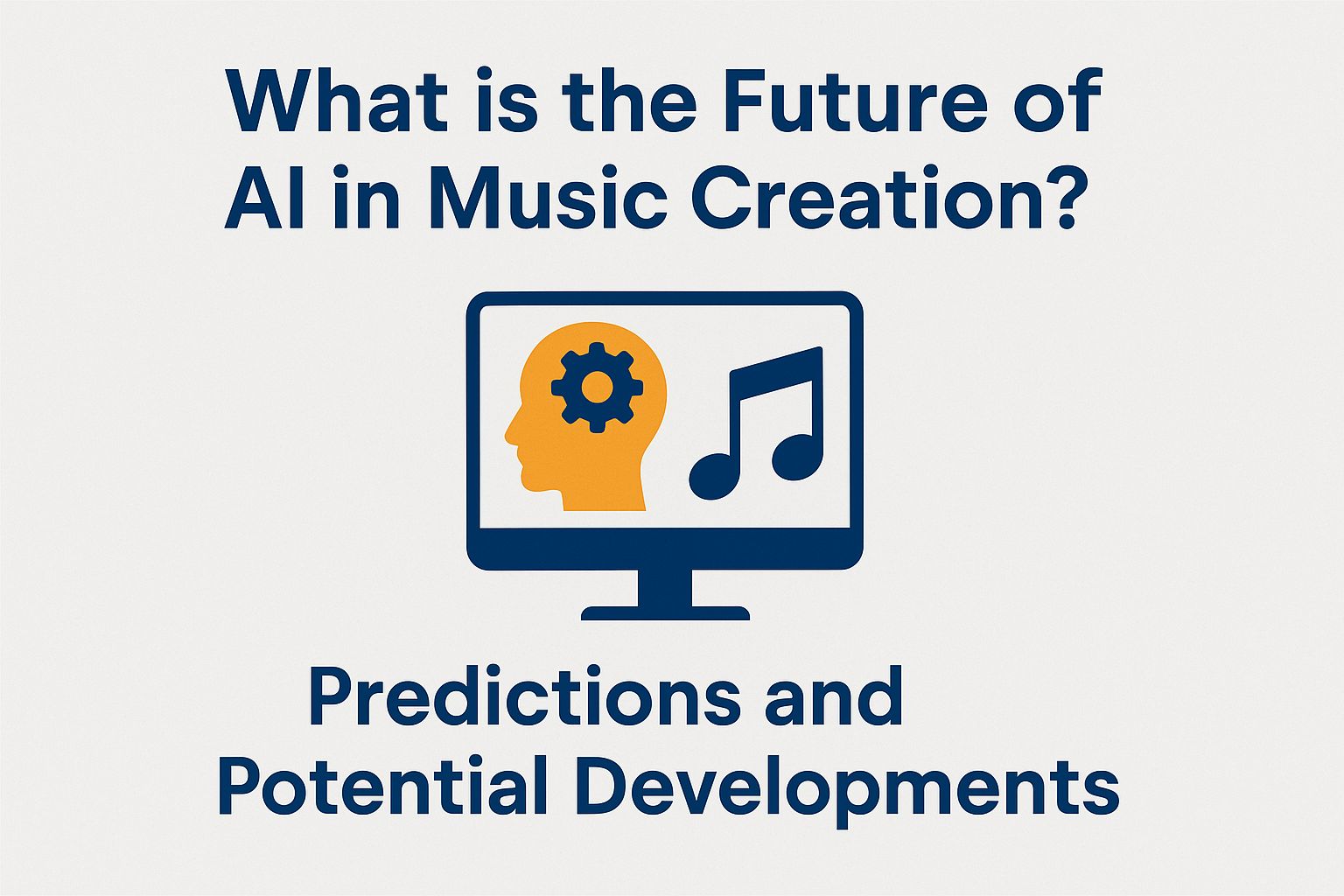
Predictions and Potential Developments
Predictions regarding the future of AI in music creation indicate a landscape characterized by enhanced collaboration between humans and machines, resulting in innovative forms of artistic expression. For example, emerging AI tools such as AIVA and OpenAI’s MuseNet give the power to musicians to compose original pieces by merely inputting a genre or style.
Additionally, platforms like Endel provide personalized soundscapes generated by AI in real-time, adapting to user preferences. As virtual reality (VR) and augmented reality (AR) technologies continue to advance, it is anticipated that artists will increasingly utilize these mediums to create immersive music experiences, including virtual concerts and interactive composition workshops.
This evolution is expected to cultivate a new community of creators and fans, similar to those created by Meta and Soundraw.https://www.youtube.com/embed/1oj0Usyy_ds
Frequently Asked Questions About AI Music Generators
1. What Are AI Music Generators and How Do They Work?
AI music generators are software programs that use artificial intelligence algorithms to create original musical compositions. These algorithms are trained on large datasets of existing music, allowing them to analyze and learn patterns, structures, and styles. They then use this knowledge to generate new music that is similar to the training data but also unique. Some AI music generators also have the ability to adapt and improvise, making them even more dynamic and versatile.
2. What Are the Top Tools and Software for AI Music Generation in 2025?
Some of the top AI music generators in 2025 include Amper Music, AIVA, OpenAI’s MuseNet, and Google’s Magenta. These tools offer different features and capabilities, such as the ability to generate music in different genres, adapt to user input, and collaborate with human musicians. These tools are constantly evolving and improving, so it’s important to keep an eye on new developments in the field.
3. What Are the Pros and Cons of Using AI Music Generators?
One of the major pros of using AI music generators is the ability to quickly and easily create original music without needing extensive musical knowledge or skills. This can be a great tool for musicians and artists to explore new sounds and ideas. However, some may argue that this removes the human element and emotion from music, making it less authentic. There are also concerns about copyright and ownership of AI-generated music.
4. What are some common techniques used by AI music generators?
One common technique used by AI music generators is the use of neural networks, that are trained on extensive music datasets to generate new compositions. Other techniques include deep learning, which allows the AI to learn from its own output and improve over time, and reinforcement learning, which rewards the AI for creating music that is well-received by listeners.
5. What is the impact of AI music generation on the music industry, artists, and listeners?
AI music generators have the potential to disrupt the music industry significantly. They make it easier and cheaper to create high-quality music. This could lead to a decrease in demand for human musicians and potentially change the role of music producers. Artists may also face challenges in terms of copyright and ownership of AI-generated music. As for listeners, AI music generators offer a vast library of new and unique music to explore and enjoy.
6. What are some practical use cases for AI music generators?
- AI music generators can create original soundtracks for films and video games,
- provide background music for commercials,
- compose personalized music based on user preferences.
- They can also be used by musicians and artists as a tool for inspiration and collaboration.
As AI music generation technology continues to advance, the possibilities for practical use cases will only increase.
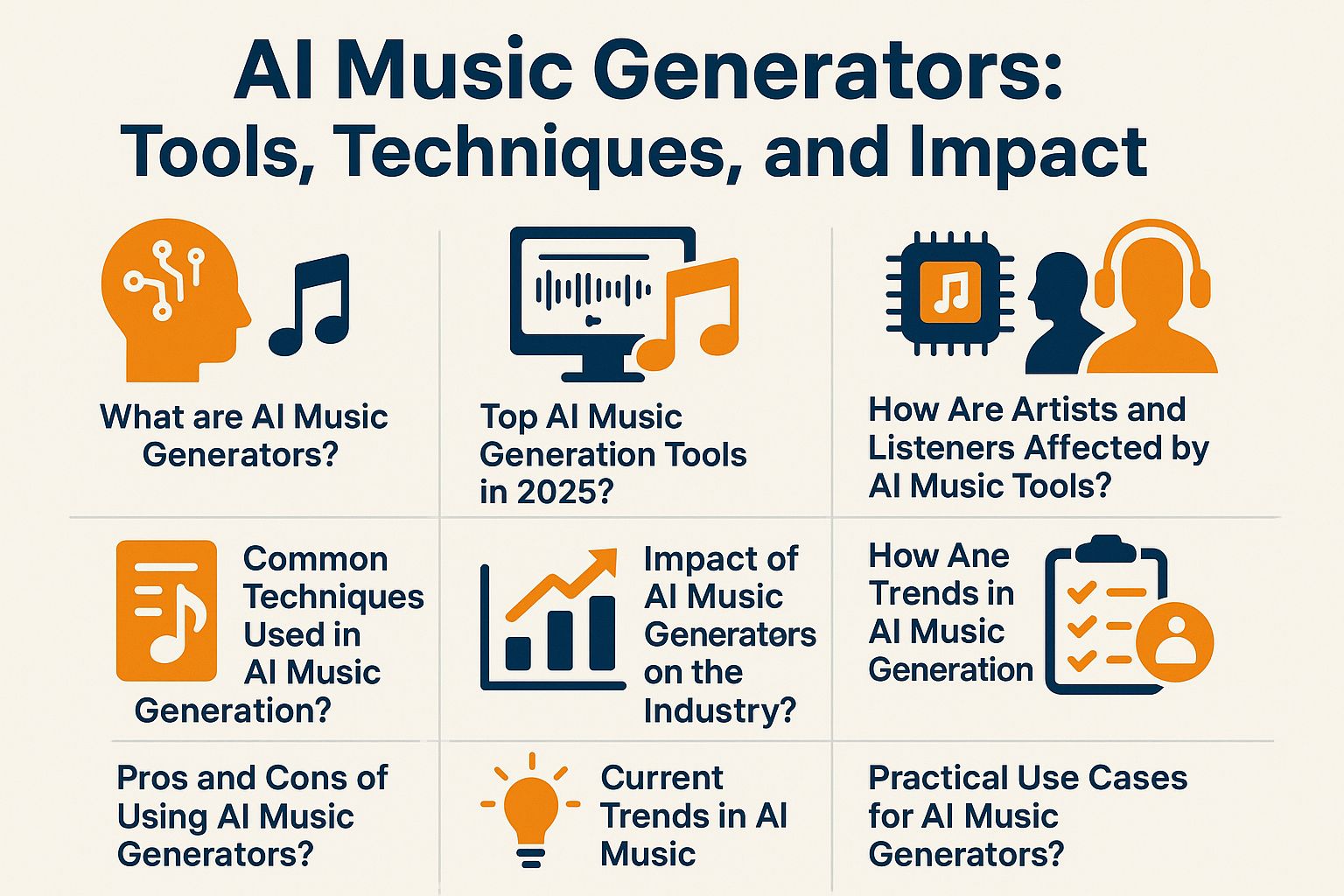
Leave a Reply